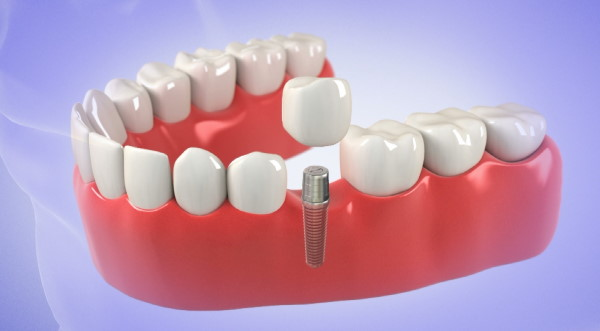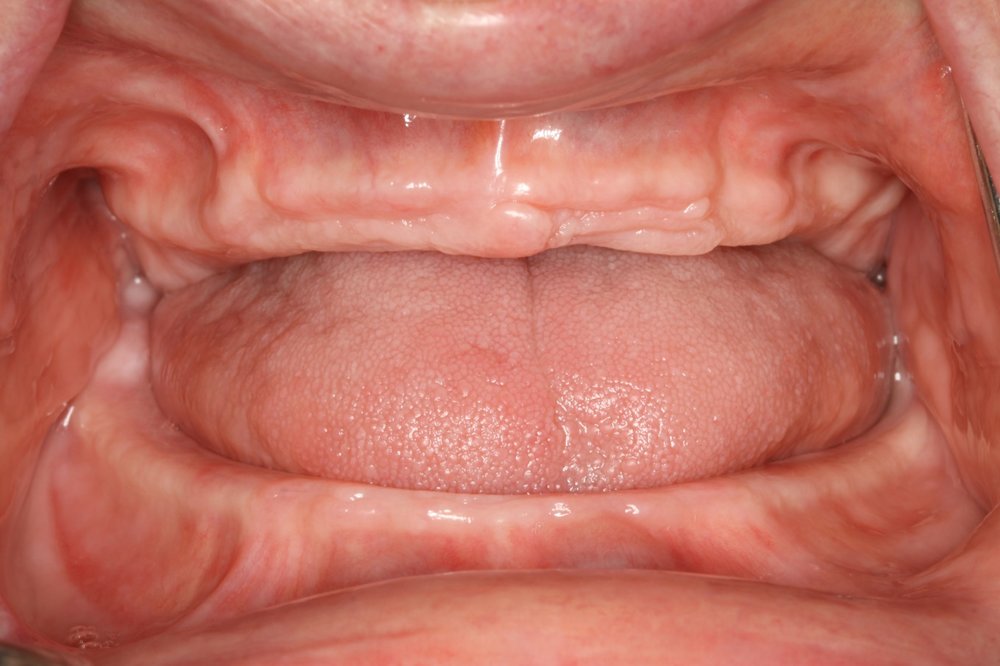
My name is David and I am an implant educator with a good knowledge of full mouth dental implant cost in Illinois as we have a lot of dental implant patients come to our office for complimentary second opinions to find about quality full mouth dental implants cost.When considering full mouth dental implants to restore missing teeth, particularly a full mouth restoration, it’s essential to understand the process and the costs involved. Whether you’re in Illinois or another part of the country, the price of full-mouth dental implants can vary based on several factors. This guide aims to provide an in-depth look at the costs, procedures, and options available to help you make an informed decision in 2025.
The cost of full-mouth dental implants in Illinois can vary significantly depending on several factors, including the type of implants, the dentist’s expertise, the clinic’s location, and any additional procedures required, such as bone grafting. Full-mouth dental implants can start from $18,000 per arch and go up depending on the amount of work you need. This includes the implants, abutments, and replacement teeth, along with pre-surgical evaluations and post-surgical care. In order to see if you are a candidate for dental implants and get the exact cost of implants based on your jaw bone density, you can book your initial complimentary bone scan consultation with an implant specialist by clicking here.
While the upfront cost may seem high, full-mouth dental implants offer a permanent solution compared to traditional dentures. They provide improved stability, function, and aesthetics, helping patients regain confidence in their smiles and enjoy a higher quality of life. Many clinics in Illinois also offer financing options to make the procedure more accessible to patients.
In This Article
What is a Dental Implant?
A dental implant is a titanium post surgically placed into the jawbone to replace missing teeth. Over time, the implant fuses with the bone (a process called osseointegration), creating a strong foundation for artificial teeth such as crowns or dentures. They mimic the look, feel, and function of natural teeth, making them one of the most popular choices for tooth replacement. Not only do they offer aesthetic benefits, but they also help maintain jawbone density, preventing the sunken facial appearance associated with tooth loss.

Figure 1 Dental implants parts
Full Mouth Dental Implant: An Overview
Full-mouth dental implants involve replacing all the teeth in the upper, lower, or both arches. Instead of placing individual implants for each tooth, which would be costly and time-consuming, dentists can strategically place fewer implants to support an entire arch of artificial teeth. This reduces both the cost and the invasiveness of the procedure while still providing the patient with a full set of functional and aesthetically pleasing teeth.
What Makes Full Mouth Implants Different?
Unlike traditional dentures, which sit on the gums and may shift, full mouth dental implants are anchored securely into the jawbone. This offers a more stable and comfortable solution, reducing the risk of slippage or discomfort. Additionally, full mouth implants help preserve bone mass in the jaw, preventing the gradual bone loss seen with traditional dentures.
Understanding the Process of Full Mouth Implants
The process of getting full mouth dental implants is more involved than a single tooth implant and typically requires several visits to the dentist. Here is an overview of the typical steps involved:
- Initial Consultation and Examination: During this visit, your dentist will assess your oral health and take X-rays or a CT scan to examine the condition of your jawbone. They will also discuss your treatment options and costs.
- Pre-Surgery Preparations: In some cases, additional procedures such as bone grafting or sinus lifts may be required if the jawbone is too weak or thin to support implants. This stage ensures the implants have a strong foundation.
- Implant Placement: The titanium implants are surgically placed into the jawbone, and a healing period of several months follows, allowing the implants to integrate with the bone.
- Abutment Placement: Small connectors called abutments are attached to the implants after healing. These will hold the crowns or dentures securely in place.
- Placement of Crowns or Dentures: Finally, custom-made crowns or implant-supported dentures are attached to the abutments, completing the restoration.
Implant Options for Full Mouth Restoration
There are two primary options for full mouth dental implants:
- Traditional Full Mouth Implants: This method involves placing multiple implants (usually 6-8 per arch) to support individual crowns or bridges. It’s a highly customized option, offering the best fit and function but at a higher cost.
- All-on-4 Dental Implants: This is a more cost-effective option where four implants are placed strategically in each arch to support a full set of artificial teeth. The All-on-4 technique is less invasive, with reduced recovery time and lower costs than traditional implants.
Choosing the Right Option
Your dentist will recommend the best option based on your oral health, bone structure, and budget. While traditional implants offer the highest level of customization and durability, All-on-4 implants are a popular choice for those looking for a quicker, more affordable solution.
How Much Do Full Mouth Dental Implants Cost in 2025?
The cost of full mouth dental implants can vary widely, depending on several factors, including the number of implants, the complexity of the procedure, and geographical location. In Illinois, the price for full mouth dental implants typically start from $18000 per arch. This price includes the surgery, implant placement, and the final restoration (crowns or dentures).
Factors that Affect the Cost of Dental Implants
Several variables can impact the total cost of your full mouth dental implants:
- Type of Implants Used: Traditional full mouth implants are more expensive than All-on-4 due to the number of implants required.
- Additional Procedures: If you need bone grafting, a sinus lift, or other preparatory procedures, this will increase the total cost.
- Dentist’s Expertise: More experienced implant specialists may charge higher fees, but their expertise can reduce complications and ensure long-lasting results.
- Location: Prices can vary based on where you live. In Illinois, dental implant costs are generally in line with national averages, though larger cities like Chicago may see higher prices due to increased overhead.
Dental Implants vs Other Treatment Options
While dental implants have a higher upfront cost than alternatives like dentures or bridges, they offer a more permanent solution. Dentures must be replaced every 5-10 years and may require frequent adjustments, while implants can last a lifetime with proper care. Additionally, implants help prevent bone loss, which can significantly impact facial aesthetics and oral health over time. The long-term benefits of implants often outweigh their initial cost, making them a better investment for many patients.
All-on-4 Dental Implants: A Popular and Affordable Choice
All-on-4 dental implants have become one of the most popular choices for full mouth restorations because of their affordability and quick recovery time. Instead of 6-8 implants per arch, only four implants are needed to support a full set of teeth. This method reduces the required surgeries and speeds up the overall treatment process.
Benefits of All-on-4 Implants
- Reduced Surgery Time: Since fewer implants are required, the surgery can be completed more quickly than traditional full mouth implants.
- Faster Recovery: With fewer implants placed, the healing process is quicker, allowing patients to return to normal activities sooner.
- Lower Cost: All-on-4 procedures are generally more affordable because they require fewer implants and less surgery time.
Full Mouth Dental Implants vs All-on-4: Which is Right for You?
While both options provide permanent solutions for missing teeth, they differ in terms of cost, invasiveness, and customization. Full mouth implants offer the best results regarding function and appearance, but the All-on-4 procedure is more affordable and less invasive. Your dentist will help you determine the best option based on your oral health, bone density, and budget.
What are Full Mouth Dental Implants?
Full mouth dental implants are a comprehensive treatment option designed to replace all the teeth in either the upper or lower jaw (or both). This approach typically involves placing several individual implants throughout the jawbone, each supporting a single crown or a bridge. Full mouth implants are ideal for people who have lost most or all of their teeth and want a long-term, permanent solution.
Key Features of Full Mouth Dental Implants:
- Implants for Each Tooth or Bridge: In a full mouth implant procedure, multiple implants are placed to hold individual crowns or bridges. Typically, 6 to 8 implants may be needed in each jaw to ensure stability.
- Custom-Designed: Each crown or bridge is custom-designed to match the patient’s natural teeth, offering a natural look and feel.
- Individual Placement: Each implant is placed individually and integrates with the bone over time through a process called osseointegration.
- Long-Term Durability: Full mouth implants are extremely durable and, with proper care, can last a lifetime.
What is All-on-4?
The All-on-4 implant system is a more streamlined and less invasive solution than traditional full mouth dental implants. As the name suggests, All-on-4 uses just four strategically placed implants in each jaw to support a full arch of replacement teeth. This procedure is often chosen for its simplicity and effectiveness in providing immediate function.
Key Features of All-on-4:
- Four Implants: The entire arch of replacement teeth is supported by just four implants, two of which are placed at an angle to maximize support and stability.
- Fixed Prosthesis: A full set of prosthetic teeth is attached to the implants, providing a complete and fully functional smile.
- Immediate Function: All-on-4 offers immediate load-bearing capability, meaning that patients often leave the dental office with their new teeth on the same day.
- Bone Grafting Rarely Needed: The angled placement of the back implants often eliminates the need for bone grafting, even in patients with lower bone density.
Comparing Full Mouth Dental Implants and All-on-4
1. Procedure Complexity
- Full Mouth Dental Implants: This procedure is more complex and requires placing more implants (typically 6-8 per jaw). Each implant is surgically placed, and healing time is required before the crowns or bridges are attached.
- All-on-4: The All-on-4 procedure is simpler, using just four implants to support an entire arch of teeth. It is less invasive and requires fewer surgeries.
2. Time to Completion
- Full Mouth Dental Implants: The process typically takes several months to complete. After implant placement, patients must wait for the implants to integrate with the jawbone before attaching the final restorations.
- All-on-4: This system often allows for immediate loading, meaning that you can receive your new teeth on the same day as your implant surgery. This reduces the overall treatment time significantly.
3. Cost
- Full Mouth Dental Implants: Full mouth implants are more expensive than All-on-4 due to the greater number of implants and custom-made crowns or bridges. The costs can vary depending on the number of implants and the case’s complexity.
- All-on-4: The All-on-4 system is generally more affordable because it uses fewer implants and requires less surgical time. This makes it a more cost-effective solution for many patients.
4. Bone Grafting
- Full Mouth Dental Implants: In cases where patients have lost a significant amount of jawbone density, bone grafting may be necessary to provide sufficient support for the implants. This adds to the overall treatment time and cost.
- All-on-4: The angled placement of the rear implants in the All-on-4 system often eliminates the need for bone grafting, making it an ideal solution for patients with bone loss who want to avoid additional procedures.
5. Durability and Stability
- Full Mouth Dental Implants: Each implant functions independently, offering superior stability and durability. Full mouth implants can last a lifetime with proper care.
- All-on-4: While the All-on-4 system is highly durable, the fact that only four implants are used to support an entire arch of teeth means it may not be as stable as individual implants in certain cases. However, for most patients, it offers excellent long-term stability.
6. Aesthetics
- Full Mouth Dental Implants: Full mouth implants provide a highly aesthetic result as each crown or bridge is custom-made to match your natural teeth. This option offers the most natural look, as each tooth is replaced individually.
- All-on-4: The All-on-4 system also offers a natural-looking solution, though it may not be as customizable as individual full mouth implants. However, modern All-on-4 prosthetics are designed to mimic the appearance of natural teeth closely.
7. Recovery Time
- Full Mouth Dental Implants: The recovery time is longer with full mouth implants, as the bone must heal around each implant before the final restoration is placed. This process can take several months.
- All-on-4: Recovery is faster since the All-on-4 system uses fewer implants and often doesn’t require bone grafting. Most patients can return to normal activities within a few days and receive their full set of teeth on the same day as surgery.
Which Option is Right for You?
Full Mouth Dental Implants Might Be Right For You If:
- You want the most stable and long-lasting option available.
- You have sufficient jawbone density to support multiple implants.
- You are looking for a completely customized solution, with each tooth replaced individually.
- You are okay with a longer treatment process involving bone grafting or additional procedures.
- You will invest more time and money for a premium, highly durable solution.
All-on-4 Might Be Right For You If:
- You are looking for a more affordable option that still provides a full set of functional and aesthetic teeth.
- You want a faster procedure that allows you to leave the dental office with new teeth on the same day.
- You have lower bone density and want to avoid bone grafting.
- You prefer a less invasive procedure with fewer implants.
- You are looking for a durable solution but don’t need each tooth replaced individually.
Exploring Insurance Coverage for Dental Implants
Most dental insurance plans do not fully cover the cost of implants, but they may cover some parts of the procedure, such as the crowns or extractions. Be sure to check with your insurance provider for specifics. Some dental offices also offer payment plans or work with third-party financing companies to help make the procedure more affordable.
Financing and Payment Plans for Dental Implants
If dental implants are not covered by your insurance, consider exploring financing options. Many dental clinics in Illinois offer payment plans, allowing you to spread out the cost of treatment over several months or even years. Additionally, companies like CareCredit and LendingClub offer healthcare financing at competitive rates, making implants more accessible to patients on a budget.
Affordable Dental Implant Options in Illinois
For those concerned about the cost, consider exploring affordable implant options in Illinois. Some dental schools offer discounted rates for procedures performed by supervised students. Additionally, dental clinics may offer promotions or discounts for new patients, and some even provide free consultations to help you better understand your options.
How to Choose the Right Dentist for Your Implant Procedure
Choosing the right dentist is crucial to the success of your full mouth dental implant procedure. Look for a dental professional with extensive experience in implantology and a track record of successful full mouth restorations. Online reviews, before-and-after photos, and patient testimonials can be helpful when evaluating potential dentists. Below are the key factors to consider when choosing the right dentist for your dental implant procedure:
1. Specialization and Training in Dental Implants
When looking for a dentist to perform your implant procedure, it is crucial to ensure that the dentist has specialized training in implant dentistry. While general dentists may offer implant services, choosing someone who has undergone advanced education in this area is beneficial. Look for credentials such as:
- Fellowship or membership in organizations like the American Academy of Implant Dentistry (AAID) or the International Congress of Oral Implantologists (ICOI).
- Completion of continuing education courses specifically focused on dental implants.
- Experience in performing implant procedures—ideally, the dentist should have a proven track record with multiple successful cases.
2. Experience and Expertise
Experience plays a significant role in the success of dental implant procedures. The more experienced a dentist is with implants, the better they will handle any complexities that arise. Ask questions like:
- How many implant procedures has the dentist performed?
- What is their success rate with dental implants?
- Do they have before-and-after photos or patient testimonials you can review?
A dentist with extensive experience in implants will likely be more equipped to tailor the procedure to your specific needs and handle complications effectively.
3. Use of Advanced Technology
The field of implant dentistry has benefited immensely from advancements in technology, which can enhance the procedure’s precision, safety, and overall success. When selecting a dentist, inquire about the technology they use, including:
- 3D imaging or CT scans: These tools provide detailed images of your jawbone and help the dentist plan the implant placement more accurately.
- Digital implant planning software can simulate the implant procedure, allowing the dentist to customize the treatment for optimal results.
- Laser dentistry: In some cases, lasers can be used to make the procedure less invasive and reduce recovery time.
Dentists who utilize cutting-edge technology can often deliver better outcomes with less discomfort and quicker recovery.
4. Personalized Treatment Plan
Every patient’s dental needs are unique, and a one-size-fits-all approach is unsuitable for implant procedures. A skilled implant dentist should take the time to create a personalized treatment plan based on:
- Your overall oral health condition.
- The number of implants you need and the condition of your jawbone.
- Any specific cosmetic goals you may have, such as matching the implants to your natural teeth.
5. Patient Comfort and Communication
Dental implant procedures can be stressful, particularly for patients who experience dental anxiety. A good dentist will prioritize your comfort throughout the process by:
- Offering sedation options to help you relax during the procedure.
- Explain each step of the implant process, including the risks, benefits, and aftercare instructions.
- Being accessible for follow-up care or in case of complications.
Choosing a dentist who communicates well and makes you feel comfortable can greatly enhance your overall experience.
6. Office Environment and Support Team
The dentist’s office environment and the staff’s professionalism are also important factors to consider. When you visit the clinic:
- Assess the cleanliness and organization of the facility.
- Observe how the support staff interacts with patients—are they friendly, helpful, and knowledgeable?
- Check if the clinic has modern equipment and a welcoming atmosphere that helps put you at ease.
A well-maintained office with a professional and caring staff often indicates that the practice is committed to providing high-quality care.
7. Cost and Financing Options
Dental implants can be a significant investment, and while cost should not be the only factor in your decision, it is still important to consider. Ask about the cost of the procedure and whether the clinic offers:
- Transparent pricing with no hidden fees.
- Flexible payment plans or financing options.
- Whether the dentist works with your insurance company to cover a portion of the costs, if applicable.
Balancing quality and affordability is essential, but always prioritize a dentist’s experience and expertise over the lowest price.
8. Reviews and Reputation
A dentist’s reputation in the community can provide valuable insight into the quality of care they provide. Look for:
- Online reviews on platforms like Google, Yelp, or Healthgrades to see what past patients have to say about their experience with the dentist.
- Referrals from friends, family, or other healthcare providers who may have undergone implant procedures.
- Professional recognition or awards the dentist has received can be an indicator of their commitment to excellence.
A dentist with positive reviews and a solid reputation is more likely to provide you with a successful and satisfying implant experience.
9. Follow-Up Care and Maintenance
The implant procedure itself is just one part of the overall treatment. Proper follow-up care is crucial for ensuring the long-term success of your dental implants. Choose a dentist who:
- Offers regular check-ups after the procedure to monitor healing and ensure the implant is integrating properly with your jawbone.
- Provides clear guidance on oral hygiene and how to care for your implants to prevent complications.
- Is available for emergency care or if you experience any issues with the implant post-procedure.
Conclusion
In 2025, the cost of full-mouth dental implants in Illinois remains a significant investment but one that offers long-term benefits in terms of function, aesthetics, and durability. While the initial price may seem high compared to other tooth replacement options, the quality and lifespan of dental implants make them a worthwhile consideration for those seeking a permanent solution. With options like All-on-4 dental implants, patients can explore more affordable and efficient ways to restore their smile. Understanding the costs, available options, and insurance coverage is essential in making an informed decision. By working with a skilled dentist and exploring financing options, you can find the right treatment plan that fits your needs and budget, ensuring a lifetime of confidence with your new smile.






